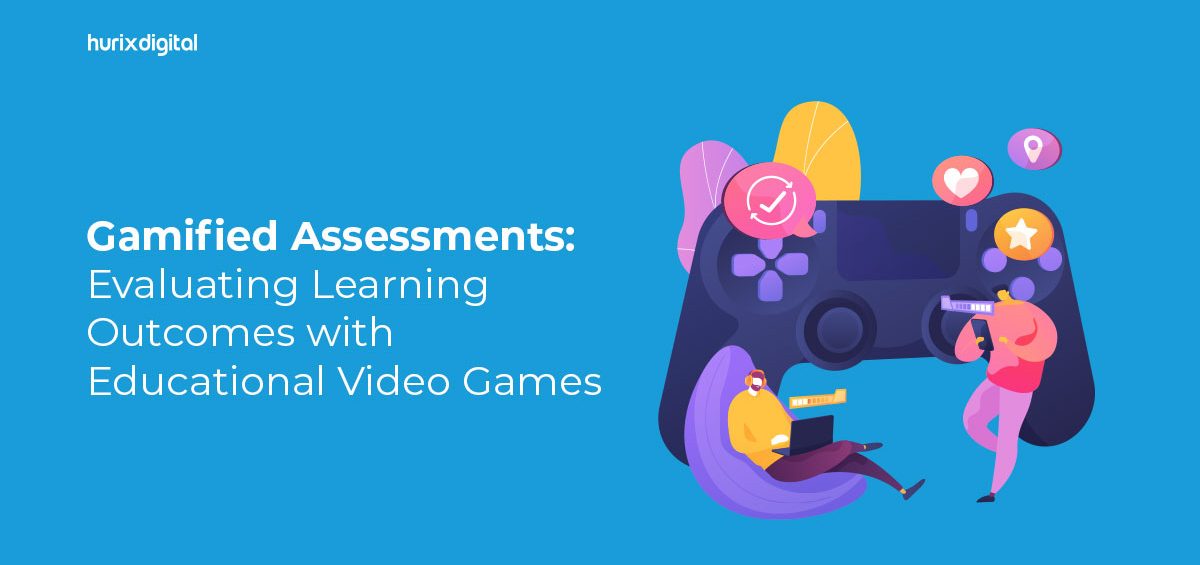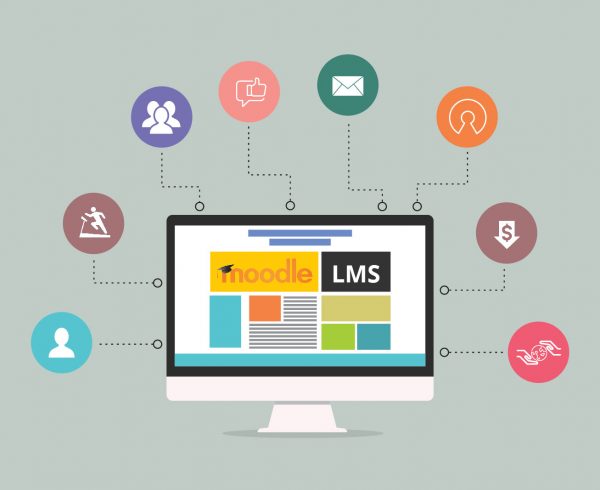Summary
This article discusses the various types of game based assessments available in digital learning tools, and how educators can use these assessments to evaluate student learning and progress.
Game-based learning in education is more popular than ever. Proven to motivate and engage students, digital learning tools are used in classrooms across the globe. But it’s not just students who are benefiting from game-based e-learning. Educators are also benefiting thanks to game-based assessments that provide opportunities for interactive assessments, formative assessments, and summative assessments.
Read on to learn about 10 types of game-based assessments, and 10 ways educators can use them to evaluate student learning and progress.
Also Read: What is an eLearning Service? 5 Types of eLearning
Table of Contents:
- Top 10 Types of Game-Based Assessments Available in Digital Learning Tools
- Top 10 Ways Educators Can Evaluate Learning Outcomes from Game-Based eLearning
- Game-Based Learning in Education: Hurix and Game Learning
Tops 10 Types of Game-Based Assessments Available in Digital Learning Tools
Educational games for students online offer various game-based assessments to evaluate learning outcomes.
1. Adaptive Assessments
Some educational games for students online incorporate adaptive assessment algorithms. These algorithms custom-tailor the difficulty and content based on students’ performance. These formative assessments successfully adjust the level of challenge to provide educators with an accurate measure of students’ abilities.
2. Collaborative Assessments
Multiplayer or cooperative digital learning tools allow students to work together to achieve a common goal. These gamified assessments help evaluate teamwork, communication, and collective problem-solving skills within the game’s context.
3. In-Game Quests or Missions
Game-based e-learning tools often feature quests or missions that students must complete to progress. These quests provide interactive assessments by evaluating students’ ability to apply knowledge, decision-making, and problem-solving skills within the educational video game context.
4. Knowledge-Based Questions
Game-based e-learning tools frequently include multiple-choice, true/false, or fill-in-the-blank questions to assess students’ factual knowledge. These questions can be integrated into the gameplay (interactive assessments) or presented at specific checkpoints (summative assessments) to provide both formative assessments and summative assessments.
5. Mini-Games and Challenges:
Digital learning tools in the classroom regularly include mini-games or standalone challenges focused on highly specific learning objectives. These activities provide game-based assessments of student’s understanding of particular concepts or skills.
6. Performance Metrics
Game-based assessments included in digital learning tools from top K12 education companies typically offer performance metrics. Performance metrics track students’ progress and performance in real-time, providing formative assessments for educators. Metrics often include scores, completion times, accuracy rates, or other gamified assessments that measure that indicate mastery or progress.
7. Progress Reports and Analytics
Educational games for students online usually generate progress reports or analytics that summarize students’ performance, achievements, and areas for improvement. These game-based assessments provide valuable insights for teachers and students who can use them to track progress over time.
8. Reflection and Self-Assessment
Game-based assessments may include reflection prompts or self-assessment features. Reflection and self-assessment are types of interactive assessments that empower students to evaluate their performance and understanding. These types of game-based assessments may also help promote metacognitive skills and self-awareness.
9. Skill-Based Challenges
Game-based learning often incorporates skill-based challenges that require students to apply their knowledge or demonstrate specific skills in real-time. These in-game challenges involve problem-solving, critical thinking, logical reasoning, or creative tasks within the game environment. Educators can then evaluate skills based on end-of-game summative assessments in teacher dashboards.
10. Simulations and Virtual Labs
Educational games from top K12 education companies frequently simulate real-world scenarios or “virtual labs”. Real-world scenarios encourage students to apply knowledge in practical situations. These game-based assessments can be embedded within the simulations to evaluate decision-making, critical thinking, and problem-solving skills.
Tops 10 Ways Educators Can Evaluate Learning Outcomes from Game-Based eLearning
Although game-based assessments are inherently useful, they are made even more powerful when educators use the following strategies to maximize the benefits of gamified assessments.
1. Authentic Assessments
Educators may opt to design interactive assessments that require students to apply the knowledge or skills acquired through the video game to real-world scenarios. These authentic game-based assessments may involve creating projects, solving problems, or demonstrating their understanding in practical contexts.
2. Clear Learning Objectives
Educators can maximize the effectiveness of game-based assessments by clearly defining the learning objectives desired from game-based e-learning. These objectives should always align with the curriculum or specific learning goals.
3. Comparative Analysis
Teachers can get the most from educational games for students online by comparing student performance in a game to performance via traditional instruction. Doing so can illustrate the effectiveness of specific game-based e-learning tools while providing a holistic view of students’ progress.
4. Interviews and Discussions
Teachers may find that conducting individual or group interviews after gameplay provides an honest summative assessment of a specific game’s effectiveness. During these discussions or interviews, educators may probe students to glean insight into their understanding of the content covered in the video game.
5. Game Analytics and Progress Reports
Most digital learning tools offered by top K12 education companies include built-in analytics and progress-tracking systems. Teachers should utilize these game-based assessments to review individual or class-level data, including the student’s performance, progress, and areas needing improvement.
6. Observation and Note-Taking
Yet another way educators can evaluate learning outcomes from game-based learning is to observe students interacting with the video game. Educators may choose to take notes on their progress, document engagement levels, assess problem-solving approaches, and evaluate how students overcome challenges they encounter.
7. Peer Evaluation
Encouraging peer-to-peer evaluation and collaboration within the video game can be an effective way to capitalize on interactive assessments for entire classrooms. Students can provide feedback to their peers based on specific criteria or learning goals. It not only fosters a sense of teamwork but also allows students to assess their knowledge and performance.
8. Before-and-After Game-Based Assessments
Educators can administer before and after game-based assessments to measure students’ knowledge or skills before playing the game and then again after engaging with the video game. This type of summative assessment can help educators determine the extent of learning that has taken place.
9. Rubrics and Scoring Guides
Developing rubrics or scoring guides that outline the specific criteria for evaluating students’ performance within the video game can be a great way to measure the effectiveness of game-based learning tools. Rubrics or scoring guides may include factors such as completing certain levels, achieving specific scores, or demonstrating mastery of certain concepts or skills.
10. Teacher-Student Feedback
Providing each student or team of students with personalized feedback on their performance within the video game is an excellent strategy for evaluating the usefulness of specific educational games for students online. Teachers may choose to highlight areas of strength and areas for improvement before guiding students toward additional resources or activities to deepen their understanding.
Game-based assessments should be ongoing and flexible, allowing for adjustments based on feedback and observations. It’s best to strike a balance between assessing learning outcomes and fostering an enjoyable and engaging learning experience using digital learning tools.
Also Read: AI-Enabled Assessment: Redefining Evaluation in Education
Game-Based Learning in Education: Hurix and Game Learning
Game Learning, a leading EdTech company, has partnered with Hurix Digital, one of the world’s top K12 education companies to offer game-based learning solutions for the K12 curriculum. To learn more, or to request a free demo, contact Hurix Digital today.











